
Chickpeas, or garbanzo beans, are the most widely eaten bean in the world. They have a nutty, rich flavor and firm texture. Use them in salads, soups and dips, but cook them thoroughly until they are tender. Undercooked chickpeas are neither tasty or good for your health.
Digestion
Undercooked chickpeas contain ogliosaccharides, or complex sugars. The human digestive system cannot readily digest these sugars in the stomach. The sugars move to the intestines where bacterial enzymes break them down. Gas and stomach distress are the result.
Taste
Undercooked chickpeas have a raw, woody taste and tough texture that makes them unappealing. They don't readily absorb spices and seasonings, either, so masking their taste is difficult. If chickpeas are undercooked, return them to the cooking liquid and simmer a bit longer. Lemon juice, tomatoes, vinegar and salt stall the cooking process, resulting in a longer cooking time. Do not add seasonings until the chickpeas are completely cooked.
Cooking Tips
To cook chickpeas, sort and rinse them carefully. Soak them overnight, or in hot water for at least one hour. Soaking also breaks down some of the sugars that cause gas. Add kombu, a sea vegetable, to ease digestion and cook chickpeas for one to three hours until tender. For quick weeknight meals, cook chickpeas and freeze them in plastic freezer boxes or bags. Defrost the beans in the refrigerator until ready to use. Another option is canned chickpeas, which are relatively inexpensive and convenient. Rinse canned beans before use to remove excess salt.
Nutrition and Use
Chickpeas are higher in fat than most legumes at 4 grams per 1 cup serving, but they also have 15 grams of protein and 13 grams of dietary fiber. They're a good source of iron, folate and calcium. Puree chickpeas with garlic, roasted pepper and a bit of olive oil for a zesty hummus dip, or serve them in salads and soups.
Related Articles

How to Cook Dried Chickpeas Without a ...
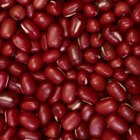
How to Soak Adzuki Beans
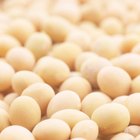
How to Cook Raw Chickpeas or Garbanzo ...

How to Buy & Cook Lentils

How to Remove Bitterness From Brussels ...

How to Freeze Lentils
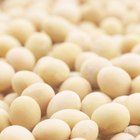
How to Rehydrate Chickpeas

How to Clean Soft-Shell Clams (Steamers)

Do You Need to Soak Lentils Before ...

How to Cook Beans

How to Cook Petai
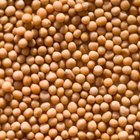
How to Cook Lentils and Split Peas

How to Cook Purple Hull Peas in the ...
How to Cook & Freeze Fresh San Marzano ...

The Best Ways to Cook Fresh Blackeyed ...
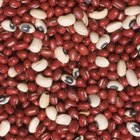
How to Convert Dried Beans to Cooked ...

How to Roast Maple and Brown Sugar ...

How to Cook Dried Prunes

How to Make and Eat Edamame, Microwave ...

How to Refresh Dried Fruits: Raisins
References
- University of Illinois Extension: Chickpeas/Garbanzo Beans
- "World Tastes"; Wild Oats Markets; 2003
- "Great Good Food"; Julee Rosso; 1993
Resources
Writer Bio
Julie Christensen is a food writer, caterer, and mom-chef. She's the creator of MarmaladeMom.org, dedicated to family fun and delicious food, and released a book titled "More Than Pot Roast: Fast, Fresh Slow Cooker Recipes."
Photo Credits
Jupiterimages/Comstock/Getty Images